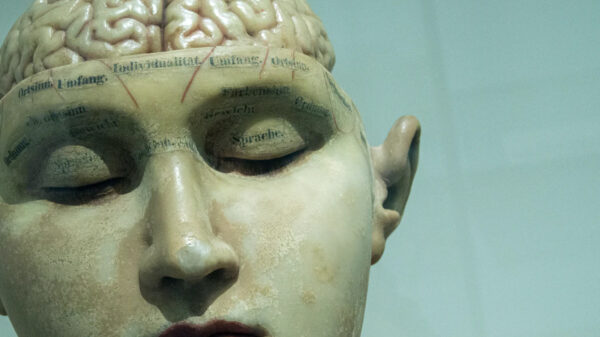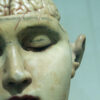My experience as a homicide detective has given me some insight into the nature of moral culpability and the limits of materialism. Over the years, some of my suspects have claimed they were not responsible for their actions because they suffered some physical condition that was beyond their control. If you’re not familiar with the famous 1979 trial of Dan White, you might want to do a little research. White murdered the mayor of San Francisco, George Moscone, and a San Francisco city supervisor named Harvey Milk. When the trial finally took place, White’s attorney claimed that White was not culpable for the murders because he had a physical condition that caused depression, and this condition was aggravated by a recent change in White’s diet. White allegedly modified his diet from healthy food to sugary food, including Hostess brand Twinkies. He claimed these unhealthy foods caused a physical condition that was beyond his control, aggravating his depression and causing him to murder Moscone and Milk. The jury actually accepted this explanation and convicted White of manslaughter rather than murder. The public response was quick and violent. People were appropriately outraged by White’s successful effort to minimize his personal responsibility; riots broke out in the city of San Francisco. This defense strategy was widely (and appropriately) panned and resulted in the creation of a label that has since been applied to all such attempts to excuse immoral and illegal behavior on the basis of some physical condition. The “Twinkie Defense” has now become a catch-all term used to describe such efforts.
When examining the causes for an event (such as a death) we can separate them into two categories: event causation and agent causation (prior physical events cause things to happen and free agents cause things to happen). It’s important to recognize that free agents alone have the freedom to act or respond without a prior physical causal event. Physical objects, like dominoes, cannot cause themselves to fall over; they require a prior event to cause them to fall. But you and I have the ability to cause the first domino to fall as a simple matter of choice (we don’t need a prior event to cause this action). You can’t blame a car for running over a victim; the car is simply a physical object subject to a series of physical processes, none of which can be held morally culpable. But we can blame the driver of the car for driving the car over the victim. The driver is a free agent, and we recognize that his choices are just that: free choices. The driver is not like the car. His choice is not simply the result of a series of purely physical processes, like dominoes falling. He had the freedom to choose otherwise, and this is why we seek to arrest and prosecute him.
Our recognition of the moral culpability of the driver (rather than the car) is an admission that materialism (physicalism) fails to explain who we are as humans. Consider the following argument:
No Physical System is a Free Agent
Physical systems are either “determined” (one event necessarily following the other) or “random”
Therefore No Physical System Has Moral Responsibility
Moral responsibility requires moral freedom of choice
Human Beings DO Have Moral Responsibility
We recognize that each of us has the responsibility and choice to act morally, and indeed, we seek to hold each other legally accountable for each other’s free-will choices
Therefore, Human Beings Are NOT Simply Physical Systems
Our recognition of moral responsibility and our efforts to hold each other accountable are irrational and unwarranted if humans are merely physical systems
If we, as humans, are only physical systems (merely matter), we ought to stop trying to hold each other accountable for misbehavior. Share on X
If we, as humans, are only physical systems (merely matter), we ought to stop trying to hold each other accountable for misbehavior. In fact, there can be no misbehavior if we are only physical brains and bodies; there can only be behavior. Our actions have no moral content at all unless we truly have the freedom to choose and the ability to break the bondage of physical event causation. As a homicide detective, I can’t prosecute the gun or knife that was used by the murderer, but I can certainly arrest the free-agent human that used the physical tool to commit the murder in the first place. I can’t do this if the human was only another purely physical object in a sequence of caused events. If materialism (physicalism) is true, there is no need for homicide detectives. We still employ detectives, however, because our sense of moral obligation proves materialism to be false.

J. Warner Wallace is a Dateline featured cold-case homicide detective, popular national speaker and best-selling author. He continues to consult on cold-case investigations while serving as a Senior Fellow at the Colson Center for Christian Worldview. He is also an Adj. Professor of Christian Apologetics at Talbot School of Theology, Biola University, and a faculty member at Summit Ministries. He holds a BA in Design (from CSULB), an MA in Architecture (from UCLA), and an MA in Theological Studies (from Gateway Seminary).









































Pingback: The Armored Farmer » Blog Archive » Recommended Reads from February 2013
Pingback: Is the concept of moral responsibility compatible with physicalism / materialism? | Wintery Knight
Pingback: The Shape of Reality: Are We Really Free? | TC Apologetics
Pingback: Three Things You’ll Have to Say to the World to Live a Surrendered, Godly Life | Cold Case Christianity
Pingback: Three Things You’ll Have to Say to the World to Live a Surrendered, Godly Life | When You Gather Blog
Pingback: Three Things You’ll Have to Say to the World to Live a Surrendered, Godly Life | A disciple's study
Pingback: Is the concept of moral responsibility compatible with physicalism / materialism? | Wintery Knight
Pingback: Is the concept of moral responsibility compatible with physicalism / materialism? by Wintery Knight | Miscellaneous Musings of a Meandering Mind
Pingback: Morality defeats naturalism | New York Apologetics